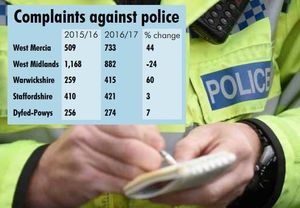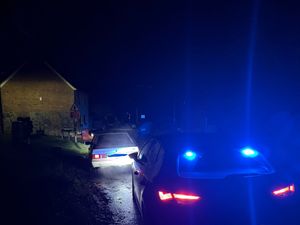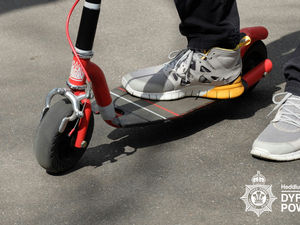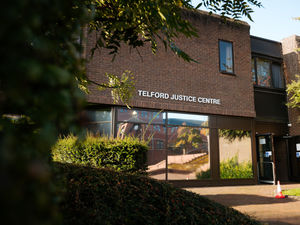West Mercia Police complaints rise by 44% in a year
West Mercia Police, which covers Shropshire, has seen a steep rise in the number of complaints, new figures have revealed.
There were a total of 733 recorded complaints, a 44 per cent increase on last year.
In 2015/16, the force received 509 complaints. The rise is the second largest nationally, according to the police watchdog.

But the annual Police Complaints Statistics, released by the Independent Police Complaints Commission, shows that the force is also dealing with complaints more quickly, reducing the time to meet issues by 59 days.
The force says it has changed the way people can report complaints, which may account for the increase.
West Mercia shares its Professional Standards Department with Warwickshire Police, as the forces have been in partnership for the past three years.
Of the complaints finalised by the force in 2016/17, 61 per cent of cases were investigated by the force, and 27 per cent were dealt with through local resolution.
Superintendent Helena Bennett, head of professional standards for West Mercia Police, said: “There has been an increase in recorded complaints made against Warwickshire Police and West Mercia Police; however, this is due to a change in our recording procedures along with our proactive efforts to make sure that people are able to make complaints more easily.
“The IPCC report highlights that increases can reflect positive measures to improve complainants’ access to the complaint system or better recording processes and this is the case with our forces.
"The figures produced by the IPCC in this report are helpful to us in making improvements. It is inevitable however that with the nature of policing as it is and the number of people with whom we have contact each day, there will be occasions when members of the public will have concerns resulting from that contact.
"It is vital that on the occasions where we do fall short of delivering the correct level of service, we acknowledge that as soon as possible, and do everything we can to put that right. We remain committed to protecting our communities from harm and are satisfied that the vast majority of our workforce do an extremely professional job on a daily basis, often in challenging circumstances. "
Dyfed Powys Police received 274 complaints in 2016/17, a small rise from the 256 it received the year before.
The IPCC has said that, nationally, forces across England and Wales remain inconsistent in their approach to handling complaints made by the public.
There will be significant changes to the police complaints system in 2018, including a greater role for police and crime commissioners, who will decide on appeals that do not go to the IPCC.
The IPCC has repeated its call for the system to be simplified, and for a consistent approach to complaints and complainants across forces.
IPCC Chair Dame Anne Owers said: “The public need to have a high level of confidence in the police complaints system. If they complain about their local police force they should be assured that it will be dealt with robustly and fairly.
“The current system is extremely complex and bureaucratic and this has led to some of the inconsistencies we have recorded year on year. It is also not sufficiently independent, since some dissatisfied complainants can only appeal to the force that rejected their complaint in the first place.
“While some local variation is unavoidable, it is clear that some forces need to look closely at their own performance and approach, where it is clearly at odds with the norm. It is welcome that some forces have done this during last year, sometimes with the assistance of our own oversight team.
“The new system will be simpler and more flexible, and will also provide an independent appeal right for everyone, either to the IPCC or to a Police and Crime Commissioner. This is welcome, but we will still need to ensure that complainants throughout the country can be assured that their complaints will be handled appropriately and thoroughly. We look forward to working with police and crime commissioners as they take on greater responsibility for complaints in their areas, to share knowledge and ensure effective and consistent oversight of the police complaints system.”
Figures released by the IPCC show that 34,103 complaints were recorded across the country in 2016/17, an almost identical figure to last year, when 34,247 complaints were recorded.
However, there is a variation between forces, both in the number of complaints and the way they are handled.
There are three main areas of inconsistency in the approach to handling complaints, with the IPCC saying the the number of recorded complaints may not reflect the whole picture, because some forces try to address issues before they are recorded as a formal complaint, whereas others record complaints as soon as an issue is raised.
When complaints are recorded, some forces choose to formally investigate most of them, while others use the less formal ‘local resolution’ process in the majority of cases and a dissatisfied complainant can appeal the outcome of a local investigation and this is dealt with by either the force, or the IPCC.
The IPCC upholds four out of 10 appeals but the police uphold fewer than two out of 10, this figure varies considerably dependent on the force.





